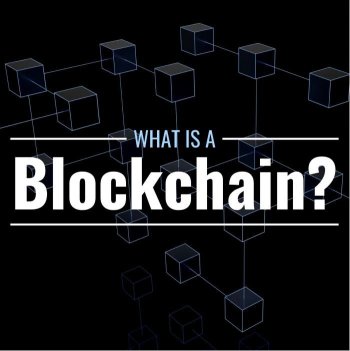What Is a Blockchain in Simple Terms?
A blockchain, at its most basic level, is a digital ledger of transactions stored on many different computers (called nodes) that are linked by a network. It is composed of a series of “blocks,” which are essentially digital baskets that can be filled with records of transactions. Once the transactions in a block are verified via a consensus between nodes in the network, that block is “closed” and added to the existing, unalterable, chronological chain of previous blocks.
Most often, blockchains are used to buy, sell, trade, and record the ownership of cryptocurrencies (like Bitcoin, Ethereum, and Solana) or other digital assets like NFTs. They can be used for other purposes as well, but we’ll get to those later on.
You can think of a blockchain sort of like a chain-of-custody record for a piece of evidence in an investigation. Every time the piece of evidence (or in the case of a blockchain, a digital asset like a Bitcoin or an NFT) changes hands, this transaction is recorded on an unalterable ledger.
Whereas a chain of evidence log can be altered or forged, a blockchain cannot because there are many copies of it on many different networked computers that have to confer on the legitimacy of a transaction in order for it to be permanently inscribed on the blockchain in the first place.
The appeal of a blockchain is that it is a secure, unchangeable record of transactions that doesn’t depend on any central authority, like a bank. In other words, no one person, entity, or institution must be trusted or relied upon in order for the blockchain to remain safe and secure.
Continue reading: https://www.thestreet.com/dictionary/b/blockchain
A blockchain, at its most basic level, is a digital ledger of transactions stored on many different computers (called nodes) that are linked by a network. It is composed of a series of “blocks,” which are essentially digital baskets that can be filled with records of transactions. Once the transactions in a block are verified via a consensus between nodes in the network, that block is “closed” and added to the existing, unalterable, chronological chain of previous blocks.
Most often, blockchains are used to buy, sell, trade, and record the ownership of cryptocurrencies (like Bitcoin, Ethereum, and Solana) or other digital assets like NFTs. They can be used for other purposes as well, but we’ll get to those later on.
You can think of a blockchain sort of like a chain-of-custody record for a piece of evidence in an investigation. Every time the piece of evidence (or in the case of a blockchain, a digital asset like a Bitcoin or an NFT) changes hands, this transaction is recorded on an unalterable ledger.
Whereas a chain of evidence log can be altered or forged, a blockchain cannot because there are many copies of it on many different networked computers that have to confer on the legitimacy of a transaction in order for it to be permanently inscribed on the blockchain in the first place.
The appeal of a blockchain is that it is a secure, unchangeable record of transactions that doesn’t depend on any central authority, like a bank. In other words, no one person, entity, or institution must be trusted or relied upon in order for the blockchain to remain safe and secure.
Continue reading: https://www.thestreet.com/dictionary/b/blockchain

